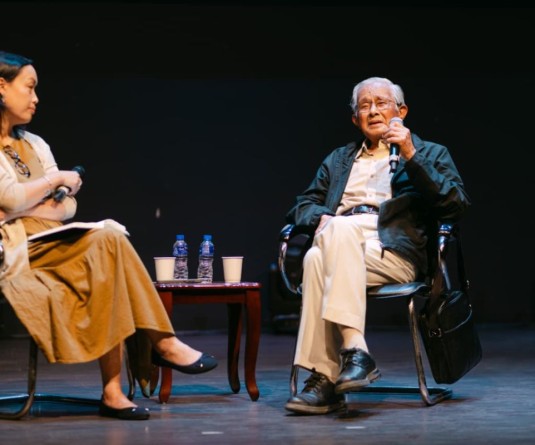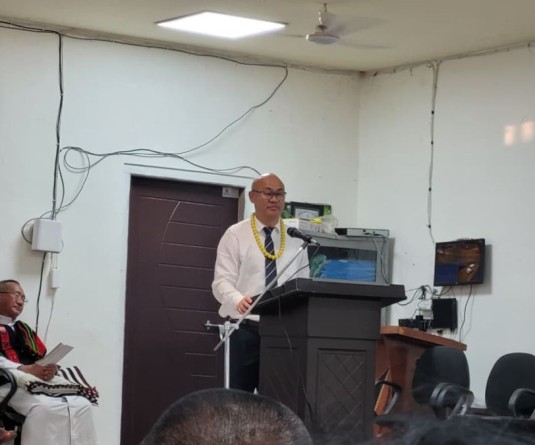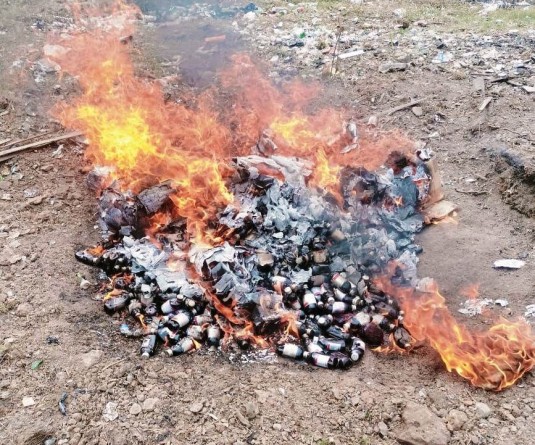
Dimapur, June 12 (MExN): The Kuki National Organisation (KNO) today narrated its version on the whole sequence that led to the turmoil and conflict in Moreh and put the blame on the UNLF for creating all the killings and tension in the town.
A press release issued by T Stephen Kuki, Under Secretary, KNO Information & Publicity, Zale’n-gam, while blaming the UNLF for the trouble in Moreh, said that KNO would like to set the record straight for all concerned men and women with any degree of integrity, self-introspection and self-respect irrespective of caste, creed and ethnicity and also as a rebuttal to a news item carried in one Manipuri daily on June 12 last under the headline, ‘Teach KNA a lesson: UNLF to Kukis’.
The release stated that the unfortunate events of June 9 at Moreh in which 11 people died are a direct consequence of UNLF’s intrusive presence in Kuki territory and their indiscriminate activities.
In this regard, the release cited some instances of UNLF activities like planting of landmines in Chandel and Churachandpur districts, indulging in mass-rape of Hmar women in Tipaimukh, and the forcible abduction of over 400 Kuki villagers in Chandel district on March 13, 2007.
“Till date 600 displaced Kuki village folks remain stranded at Moreh because their lands infested with the UNLF laid landmines have not been sanitized” stated the release.
The release stated that the UNLF tried to persuade the displaced people stranded at Moreh to return to their villages, to which the villagers refused and preferred to remain at Moreh. On this, the UNLF deployed its cadres on June 2 to coerce the people, however, the cadres were confronted by the KNA, thereby following an encounter, the UNLF cadres retreated into Myanmar, where they were provided ‘safe haven’ by the Myanmarse army.
The release disclosed that on June 3, the KNA cadres killed one UNLF cadre who was involved in the previous day’s encounter with the KNA. However, the release stated that the KNO clarified the following day, that it is neither communal and nor harbour any ill-will towards the Meitei public, and that the UNLF cadre was killed not because he was a Meitei, but for his communal activities.
The release stated that the UNLF, however, in order to deal with the displaced people, deployed five armed cadre on June 9 and entered Moreh town and within minutes of their entry, randomly fired upon innocent Kuki labourers.
Soon after, the IRB personnel guarded Ward No 7 to prevent attack on the Meitei locality by the Kukis, while the attackers escaped into Burma, the KNO stated.
The release stated that the preceding sequential facts lay bare the proceedings and developments of the unfortunate events that unfolded at Moreh.
In this regard, the KNO surmised that if UNLF has the audacity to suggest that they are not communal after the their actions against Kuki public then they must be either completely deluded or lack the gumption to realize that they cannot always fool the people, whether Kuki or Meitei as there are still honest, fair and unbiased citizens who are possessing a keen sense of truth and reality.
The release affirmed that the KNA has not engaged in attacking camps of UNLF cadres, while the latter have repeatedly attacked our camps at Molvailup, Molcham, Samtal etc. The Kuki people do not subscribe to the ideology of what the UNLF call a ‘revolutionary movement’, but to their own movement called Zale’n-gam ie to protect the integrity of their ancestral lands.
The KNO further stated that to avoid further misunderstanding between the Kukis and Meiteis, it would be prudent for UNLF to confine their revolutionary activities, ideologically and physically to the valley called Manipur, which has been their abode from time immemorial, the release stated and added that Kuki Hills is Zale’n-gam.
The release concluded with a note of appeal for peaceful co-existence between the Kukis and Meiteis by promoting mutual respect for each others territory and human rights of the two peoples.






